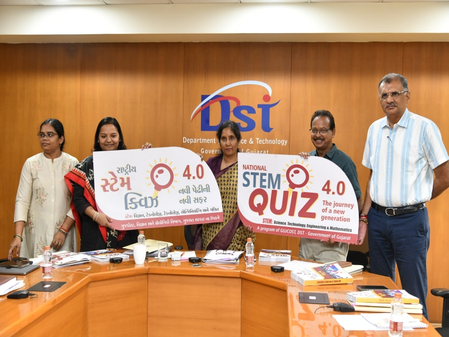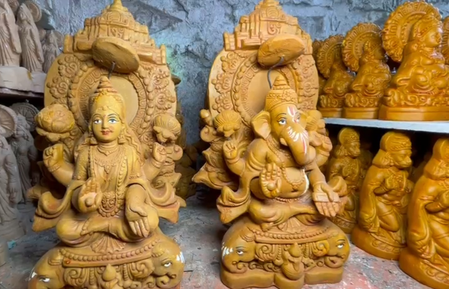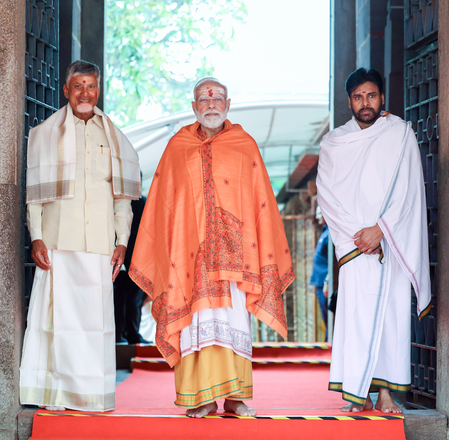
Gandhinagar, Sep 19 (IANS) The Gujarat Council on Science and Technology (GUJCOST), under the Department of Science and Technology (DST), on Friday launched the country’s largest National STEM Quiz 4.0 with prizes worth up to Rs 2 crore for winning students.
Unveiling the quiz, DST Secretary P. Bharti said the initiative — titled “National STEM Quiz 4.0: A New Journey for a New Generation” — aims to nurture curiosity, analytical thinking, and problem-solving skills among school students.
In addition to cash rewards, winners will get the opportunity to visit premier scientific institutions such as BARC-Mumbai, DRDO, SAC-ISRO, and NFSU-Gandhinagar, as well as participate in an exclusive STEM boot camp designed for the top 200 students.
The quiz will be held in two categories — Junior (Class 9–10) and Senior (Class 11–12). Students across India, from all boards and mediums, can register free of cost at www.stemquiz.gujarat.gov.in until October 30, 2025.
Speaking at the launch, GUJCOST Advisor and Member Secretary Narottam Sahu highlighted that since 2022, the STEM Quiz has grown into a national platform.
Last year’s third edition saw over 10.12 lakh registrations from students across states and boards.
“This year, we are targeting participation from more than 20 lakh students across India,” he added.
As part of the launch, dignitaries also released a Quiz Bank book for junior and senior levels. The event was attended by GSBTM Mission Director Digvijaysinh Jadeja, GSEM Mission Director Neha Kumari, Dr. Vijay Patel from GCERT, and representatives from regional and district science centres, Jawahar Navodaya Vidyalayas, and CBSE schools, with students joining virtually from across the country.
STEM — science, technology, engineering, and mathematics — is at the heart of India’s growth story, driving everything from space exploration and digital innovation to renewable energy and healthcare.
With a young population and one of the largest pools of engineers and scientists in the world, India relies on STEM to fuel its economic competitiveness, create jobs of the future, and address pressing challenges like climate change, food security, and sustainable urbanisation.
–IANS
janvi/pgh




